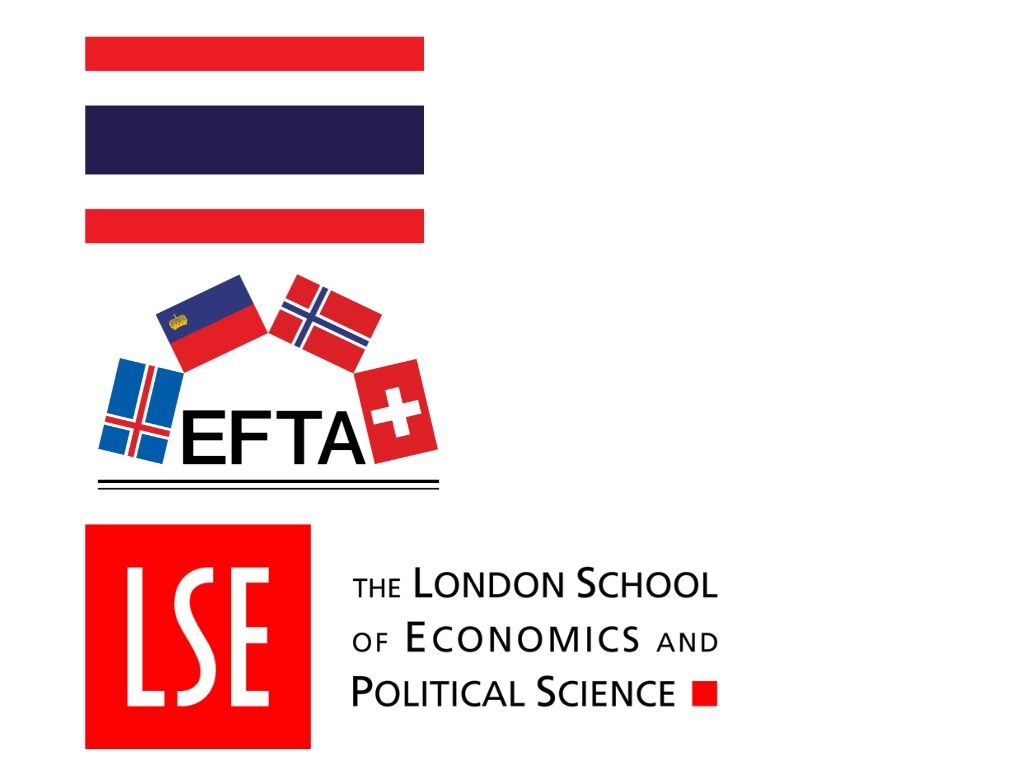
EFTA releases Sustainability Impact Assessment of future EFTA–Thailand FTA

On 26 September, the European Free Trade Association (EFTA) released a Sustainability Impact Assessment (SIA) of a free trade agreement (FTA) between the EFTA States and the Kingdom of Thailand. The SIA was conducted by LSE Consulting’s Trade Policy Hub as an independent third party, in parallel with the ongoing negotiations.
The comprehensive assessment evaluates the potential sustainability effects of a future FTA with Thailand. It employs computable general equilibrium (CGE) economic modelling, an extensive literature review and broad stakeholder consultations, and is based on a realistic scenario reflecting the FTAs most recently concluded by both parties.
The negotiations between EFTA and Thailand encompass a wide range of topics, including trade in goods and services, investment, e-commerce, intellectual property rights (IPR), competition, government procurement, and trade and sustainable development (TSD). The objective is to conclude an ambitious agreement that goes beyond existing World Trade Organization commitments, while taking into account the specific trade interests and sensitivities of all parties involved.
Key findings from the SIA shed light on various facets of a future FTA:
Positive economic impact: The SIA reveals positive effects on trade dynamics, with Thailand experiencing significant shifts in both export and import patterns across various sectors. Notably, it predicts a potential increase in GDP, employment, consumer welfare, private consumption and government expenditure for both the EFTA States and Thailand.
Enhanced investment: The FTA holds the potential to stimulate increased foreign direct investment in both directions, fostering economic growth and innovation. Comprehensive provisions relating to IPR protection are expected to attract investment and bolster trade in IP-intensive sectors.
Social and environmental considerations: Importantly, the report predicts that an FTA will not result in an increase in global greenhouse gas emissions. Although emissions are set to increase slightly in both the EFTA countries and Thailand, the FTA will still lead to a slight overall reduction globally due to trade diversion effects away from more carbon-intensive economies. Similarly, projections indicate a reduction in some pollutants. The report sheds light on existing sustainability challenges in certain economic sectors in Thailand. It highlights the importance of ensuring that the implementation of the FTA does not exacerbate these issues, but creates benefits for all relevant economic actors and stakeholders, including small and medium-sized enterprises.
The SIA also offers a set of policy recommendations to foster sustainable trade practices and maximise the mutual benefits of the FTA, including:
Trade and investment liberalisation:
Reducing or eliminating tariffs and non-tariff barriers to trade to stimulate bilateral trade and increase economic opportunities and job creation.
Improving market access conditions for trade in services and investment, particularly in services sectors such as tourism, transport, finance and digital services.
Addressing regulatory barriers and promoting transparency to ensure fair treatment for all businesses.
Intellectual property rights:
Aligning Thailand's IP framework with international standards to foster innovation and protect intellectual property.
Strengthening enforcement mechanisms.
Establishing robust protection of geographical indications.
Environmental and social standards, including labour and human rights:
Incorporating comprehensive TSD provisions into the FTA to safeguard environmental standards, labour rights and other human rights in connection with increased trade and economic activity.
The complete SIA report is available here:
For media inquiries, please contact Asdis Olafsdottir, Head of Information and Communication, EFTA Secretariat, asdis.olafsdottir [at] efta.int (asdis[dot]olafsdottir[at]efta[dot]int), phone: +32 498 11 05 41.
Read more about the report conducted by LSE Consulting’s Trade Policy Hub.